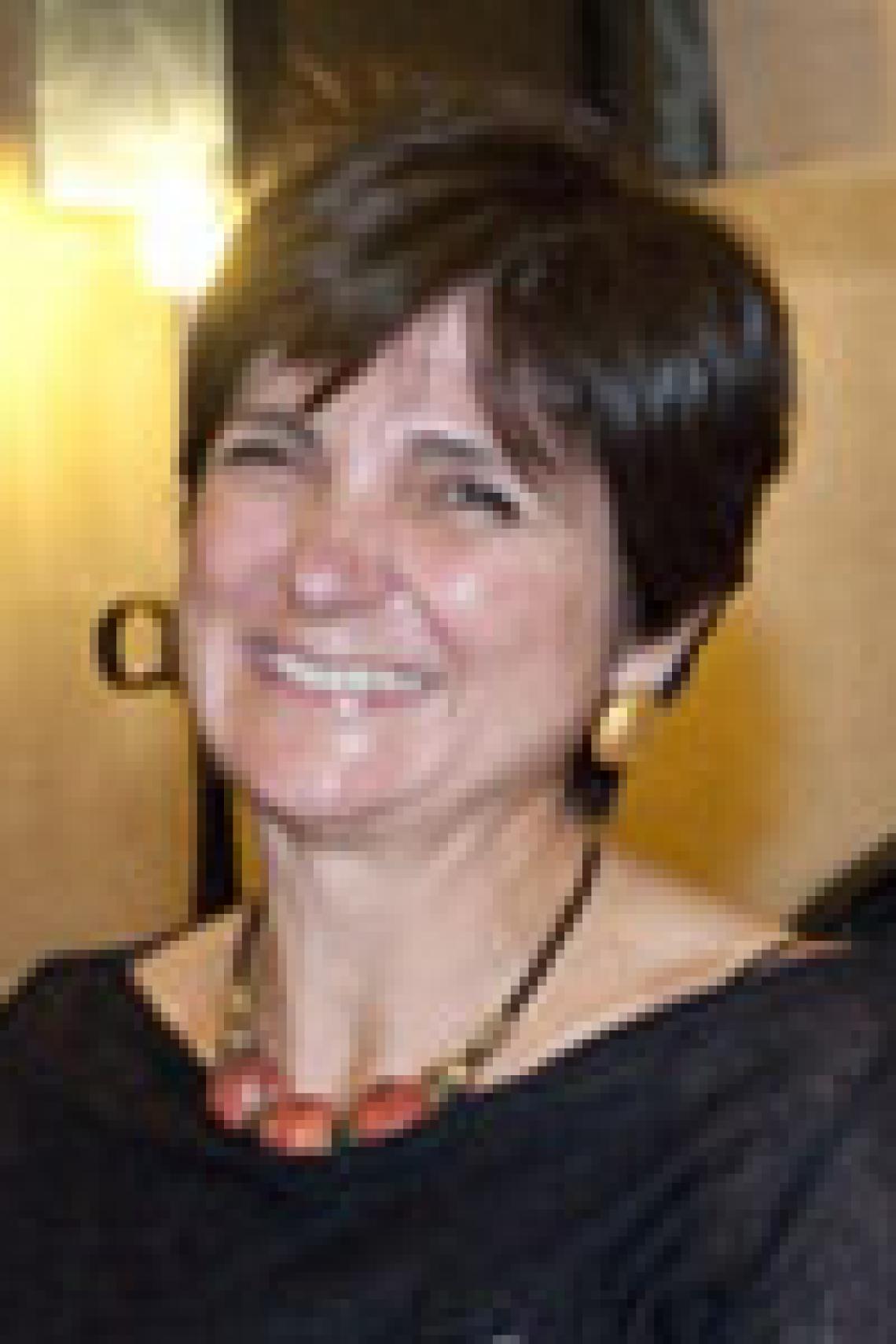Laura Rival and colleagues investigate impact of COVID-19 on indigenous peoples in Amazon
Associate Professor Laura Rival is working with Brazilian, Peruvian, Ecuadorian and Colombian colleagues, as well as colleagues from various research-in-action networks, to support indigenous demands for appropriate and culturally respectful health and education provision in the context of the COVID-19 pandemic in the Amazon.
This forms part of her ongoing work with indigenous communities of the Amazon and her current collaboration with a British Academy-GCRF research project on '"Sustainable" Development and Atmospheres of Violence: Experiences of Environmental Defenders'.
Rival and her colleagues are studying reports from Brazil indicating that land-grabbing within indigenous territories is propagating the spread of COVID-19. The Society for the Anthropology of Lowland South America (SALSA), an international scholarly organisation composed of professors, students, and practitioners, which is multiplying efforts to advocate, analyse, and collect information pertinent to the impact of coronavirus on traditional peoples in Amazonia, issued a statement on 22 April expressing concerns that illegal land speculation in the Brazilian Amazon was increasing under President Jair Bolsonaro and may be accelerating the spread of the pandemic among indigenous peoples within their own demarcated territories.
On 11 April, a young Yanomami boy became the first indigenous person in a remote region to die of the virus, which he contracted via contact with trespassers digging for gold on his land.
In Manaus, the capital of the state of Amazonas, Brazil, where more than 30,000 indigenous people live, a number of deaths related to COVID-19 have also been registered by indigenous scholars working at NEAI (Nucleo de Estudos de Amazonia Indigena), Universidad Federal do Amazonas. The indigenous population of the state of Amazonas, the largest in Brazil, counts around 170,000 indigenous citizens according to the last census (2010). The 2020 census was suspended because of the pandemic.
Many native Amazonians move back and forth between their remote communities and crowded peri-urban neighbourhoods around jungle towns and large cities such as Manaus, Belem or Iquitos, where life conditions are very precarious, and adequate health infrastructures deficient or lacking. Many Huaorani people decided early in March to protect their families by leaving the towns of Puyo, Coca or Tena and return to the forest, where medical attention is harder to deliver.
Professor Rival is in contact with young indigenous scholars who are documenting the public health situation of Manaus to highlight both the needs of all poor, vulnerable and marginalised families, and the specific needs of their people. They are reflecting collectively on the reasons why indigenous people are particularly vulnerable in pandemics in order to understand better what measures should be taken in the case of this new, specific COVID-19 crisis.
These scholars are worried by the impact of the closure in 2010 of the City Hall’s Indigenous Health Management Unit in Manaus. As Brazil’s health system is collapsing under the impact of the pandemic, better coordination is needed between the Special Sanitary Indigenous District (DSEI), which looks after indigenous communities located on demarcated lands, and urban services, where indigenous citizens are not made visible or given attention. The DSEI, which is currently coordinated by Mário Ruy de Freitas Junior, attends to the health needs of 29,06 indigenous citizens from 35 different ethnic groups living in 253 different communities.
With the support of Fabiane Vinente (Anthropologist, Oswaldo Cruz Foundation, Manaus), these young indigenous scholars are also documenting the number of daily burials, and the lack of capacity in local cemeteries.
One demand being expressed by indigenous leaders in Manaus is that urban residents be registered as indigenous citizens by the city’s health secretariat, SEMSA (Secretaria Municipal de Saúde), so that they can be included in the city’s vaccination campaigns.
Below are some illustrations of people living in Parque das Tribos, the largest indigenous urban settlement in Manaus, where Vanda Ortega ( Witoto), who was trained as a nurse, is organising WhatsApp groups to send messages with advice on preventative measures. She is also campaigning to get funds to buy protective equipment for indigenous health workers and volunteers.
[[{"fid":"2469","view_mode":"default","fields":{"format":"default","field_file_image_alt_text[und][0][value]":"Young people dancing in Manaus","field_file_image_title_text[und][0][value]":false,"field_image_information[und][0][value]":"","field_image_information[und][0][format]":"filtered_html"},"type":"media","field_deltas":{"1":{"format":"default","field_file_image_alt_text[und][0][value]":"Young people dancing in Manaus","field_file_image_title_text[und][0][value]":false,"field_image_information[und][0][value]":"","field_image_information[und][0][format]":"filtered_html"}},"link_text":null,"attributes":{"alt":"Young people dancing in Manaus","class":"file-default media-element","data-delta":"1"}}]]
[[{"fid":"2470","view_mode":"default","fields":{"format":"default","field_file_image_alt_text[und][0][value]":"Picture of Vanda Ortega","field_file_image_title_text[und][0][value]":false,"field_image_information[und][0][value]":"","field_image_information[und][0][format]":"filtered_html"},"type":"media","field_deltas":{"2":{"format":"default","field_file_image_alt_text[und][0][value]":"Picture of Vanda Ortega","field_file_image_title_text[und][0][value]":false,"field_image_information[und][0][value]":"","field_image_information[und][0][format]":"filtered_html"}},"link_text":null,"attributes":{"alt":"Picture of Vanda Ortega","class":"file-default media-element","data-delta":"2"}}]]
Vanda Ortega (Witoto)
[[{"fid":"2471","view_mode":"default","fields":{"format":"default","field_file_image_alt_text[und][0][value]":"Women talking at a window in Manaus","field_file_image_title_text[und][0][value]":false,"field_image_information[und][0][value]":"","field_image_information[und][0][format]":"filtered_html"},"type":"media","field_deltas":{"3":{"format":"default","field_file_image_alt_text[und][0][value]":"Women talking at a window in Manaus","field_file_image_title_text[und][0][value]":false,"field_image_information[und][0][value]":"","field_image_information[und][0][format]":"filtered_html"}},"link_text":null,"attributes":{"alt":"Women talking at a window in Manaus","class":"file-default media-element","data-delta":"3"}}]]
[[{"fid":"2472","view_mode":"default","fields":{"format":"default","field_file_image_alt_text[und][0][value]":"Woman and child dancing, Manaus","field_file_image_title_text[und][0][value]":false,"field_image_information[und][0][value]":"","field_image_information[und][0][format]":"filtered_html"},"type":"media","field_deltas":{"4":{"format":"default","field_file_image_alt_text[und][0][value]":"Woman and child dancing, Manaus","field_file_image_title_text[und][0][value]":false,"field_image_information[und][0][value]":"","field_image_information[und][0][format]":"filtered_html"}},"link_text":null,"attributes":{"alt":"Woman and child dancing, Manaus","class":"file-default media-element","data-delta":"4"}}]]
Professor Rival has also collaborated with the Goeldi Museum who organised a special online roundtable discussion on the impact of the coronavirus pandemic on indigenous peoples in Brazil on Thursday 23 April in honour of Indigenous Peoples Week.

